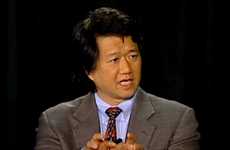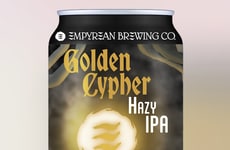
Baba Shiv Keynotes
Keynotes by Baba Shiv study decision-making tactics and whether or not having choices is a positive....

Need Inspiration?
Get inspired by 4,000+ keynote speaker videos & our founder, a top keynote speaker on innovation.
Baba Shiv’s Relinquishing Control Speech Explains Why Collaboration Wo
Elise Ying-Hei Ho — December 14, 2012 — Keynote Trends
References: gsb.stanford.edu & youtube
Professor of Marketing at Stanford University Baba Shiv explores human decision-making and uncovers why it is sometimes better to give up the reins in his relinquishing control speech.
The professor poses an interesting hypothetical situation to the audience, which he splits in half, where one team has the freedom to choose their flavor of tea and the other, he assigns. The flavor selection, he adds, are restricted to those that either assist in mental focus or have calming effects. Imagine that in 30 minutes, a series of puzzles will be handed out. How well do they think they will do, he questions the audience.
In an identical study conducted by Shiv, the results revealed that, surprisingly, those without the choice of tea performed better in this experiment than those who chose their own. INCA, an abbreviation Shiv uses to describe the thought process after making a decision represents Immediate, Negative, Concrete and Agency, which often serve to produce doubt in choices, longing for foregone ones and significantly decrease personal confidence. This consequently creates a lower level of persistence, resulting in the individual giving up faster and often prior to the time limit on the given task.
The professor poses an interesting hypothetical situation to the audience, which he splits in half, where one team has the freedom to choose their flavor of tea and the other, he assigns. The flavor selection, he adds, are restricted to those that either assist in mental focus or have calming effects. Imagine that in 30 minutes, a series of puzzles will be handed out. How well do they think they will do, he questions the audience.
In an identical study conducted by Shiv, the results revealed that, surprisingly, those without the choice of tea performed better in this experiment than those who chose their own. INCA, an abbreviation Shiv uses to describe the thought process after making a decision represents Immediate, Negative, Concrete and Agency, which often serve to produce doubt in choices, longing for foregone ones and significantly decrease personal confidence. This consequently creates a lower level of persistence, resulting in the individual giving up faster and often prior to the time limit on the given task.
1.6
Score
Popularity
Activity
Freshness
















